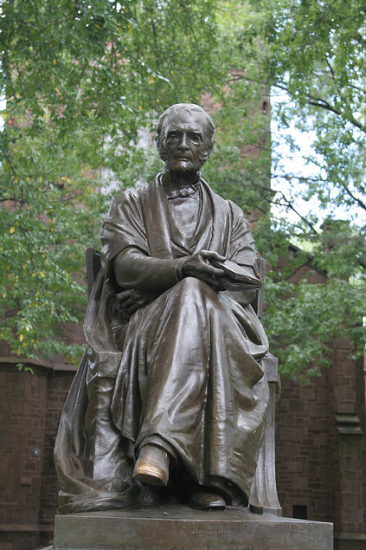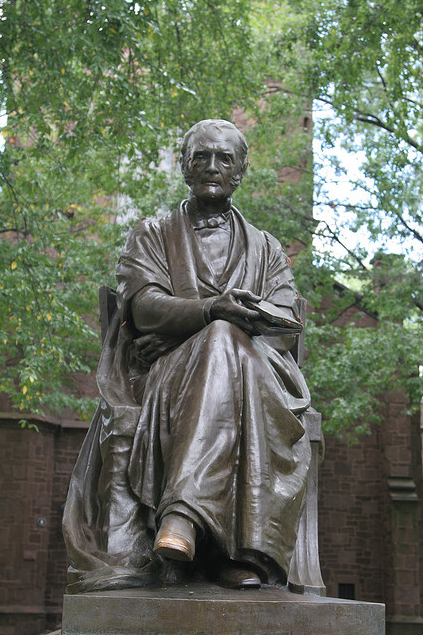
Photo from Web
I’m afraid to eat in Harris by myself. My apartment-contingent reduced meal plan limits me to five meals per week of haphazardly-made sandwiches and French fries I stuff in my pocket on the way to class when my hunger isn’t accompanied by a friend. I haven’t sat down to eat in weeks. Recently, I was standing in my kitchen eating guacamole when my roommate invited me to Harris with her. She told me she was meeting Education Professor Michael James, or “Jaime” as she knows him. She took one of his classes last semester and they’ve stayed in touch; they meet semi-weekly for life crisis lunches with Web Content Editor Emily Rempell. I’m the new addition.
Professor James greets me with open arms. After only one prior conversation, he remembers that I am a Government major, a former dancer, and the editor-in-chief of the paper. The three of them chat over celery, hummus and KB Fields of Feta about the tensions of teaching in a school with varying socioeconomic locations, and the myriad requirements for teaching certifications. Then the conversation turns to me. James asks me how I’m going to use what I’ve learned from my internship in search of a job. He pushes me to use the contacts I made over the summer as leverage into the real world. I cower, and suddenly the discussion covers all of the things I don’t want to think about: my goals, where I want to live, my backup plan. He implores me to stay positive and trust myself and the strength of my education. He reminds me, however, that nothing comes easily and that I will have to work hard to get what I want. Soon after, he sent me a follow-up email. I’ve never taken a class with him before.
Last week, I interviewed several prospective students for the Office of Admission, and many of them are fascinated by our school’s small size, questioning the benefits. The offices of Admission and College Relations choose to focus not on the population itself but on the “nine-to-one student-to-teacher ratio” factoid that is the core of every tour, information session and interview. Our small, intimate learning environment is one of our main selling points, but what about the advantages it offers us outside of the classroom? Blanche Boyd, my English professor and unofficial mentor, called me one morning in a tizzy—she was sick and unable to make it to class, but she didn’t want to cancel it. The next best thing presented itself: “Will you teach it?” I brushed my teeth and ironed my clothes while mentally sketching out a lesson plan and texting Blanche along the way. She allows experienced students to lead class a few times each semester; it was the first time I ever considered myself “experienced.” I mentioned this in passing to my advisor, Government Professor Tristan Anne Borer, and she congratulated me on the newfound responsibility. But she also made sure that I took advantage of it by putting it on my resume. I’ve been trusted enough to take something I love—writing—and teach it to others by someone who’s taught it to me. This can’t happen without building a productive, open relationship with our professors.
Our professors are more than just lecturers and graders; they are competent, knowledgeable advisors who can relate to where we are and can help us navigate where we’re going. The nine-to-one claim to fame offers us not only a classroom advantage, but also access to a bevy of adults that know us, trust us and are willing to endure repeated senior year breakdown conversations when they could really use a lunch break. Advisors don’t just drop us after freshman year, but stick with us through thesis ideas and decisions about majors, CELS internship recommendations and graduation photos with parents. This ratio is nothing without the professors that go the extra mile—via text message, email, or extended office hours—to enrich our learning experience. In an opinion article this week, Willie Muse debates the uniqueness of Connecticut College via our lack of tradition. I don’t disagree with him, but I do think that our school’s distinctions aren’t as pronounced as others. This doesn’t make them any less important.
Instead of having symbols that we should avoid or lucky charms to fight over, we have access to real-life, tangible people who have a genuine interest and curiosity about how we will use the resources, connections, and knowledge that we’ve acquired both inside and outside of the classroom. Our uniqueness lies in professors who you can contact casually, open lunch dates, and a constant stream of advice. The resources that our close-knit community offers results in a college experience that no statue’s lucky foot or football field legend can match.
– Jazmine










